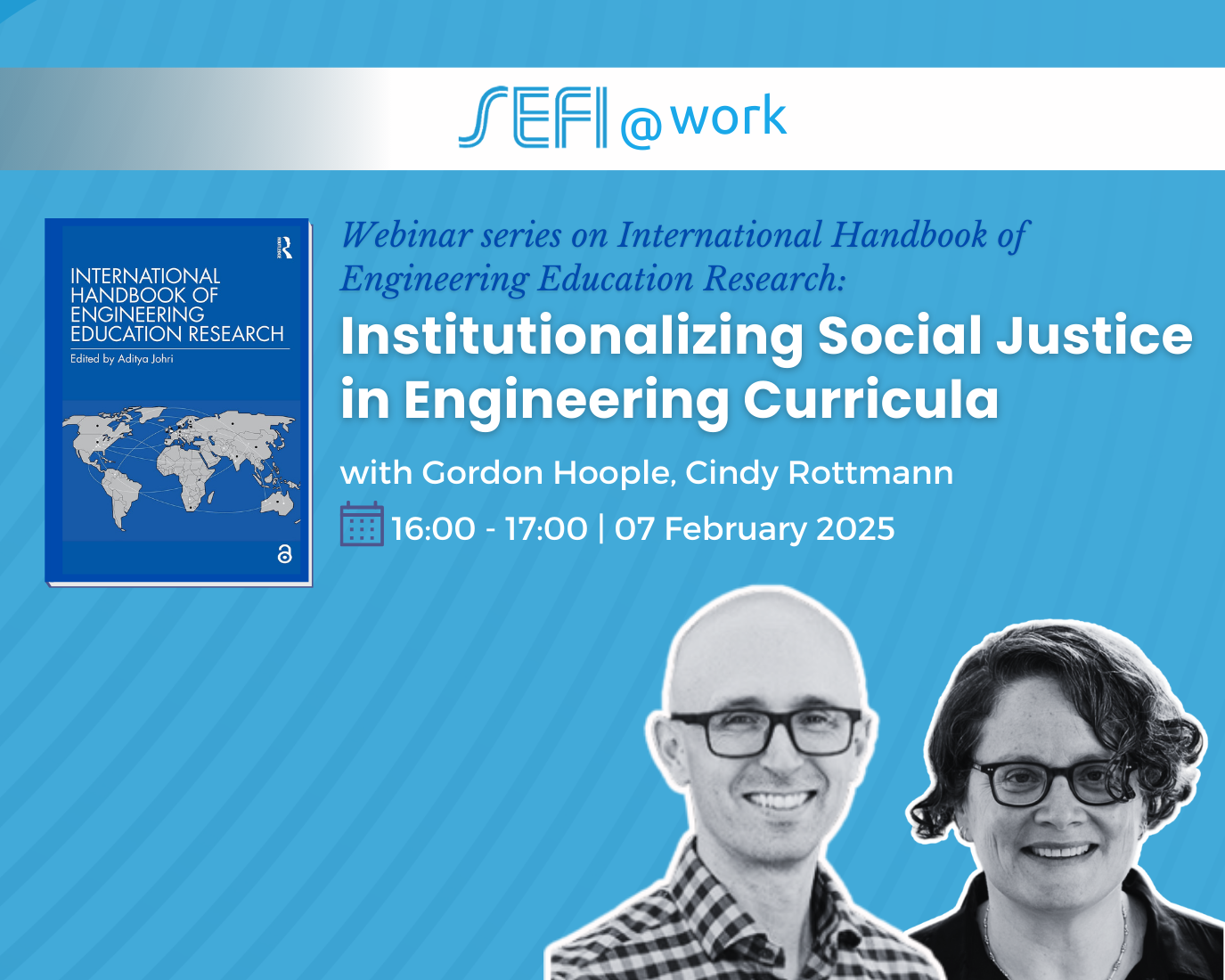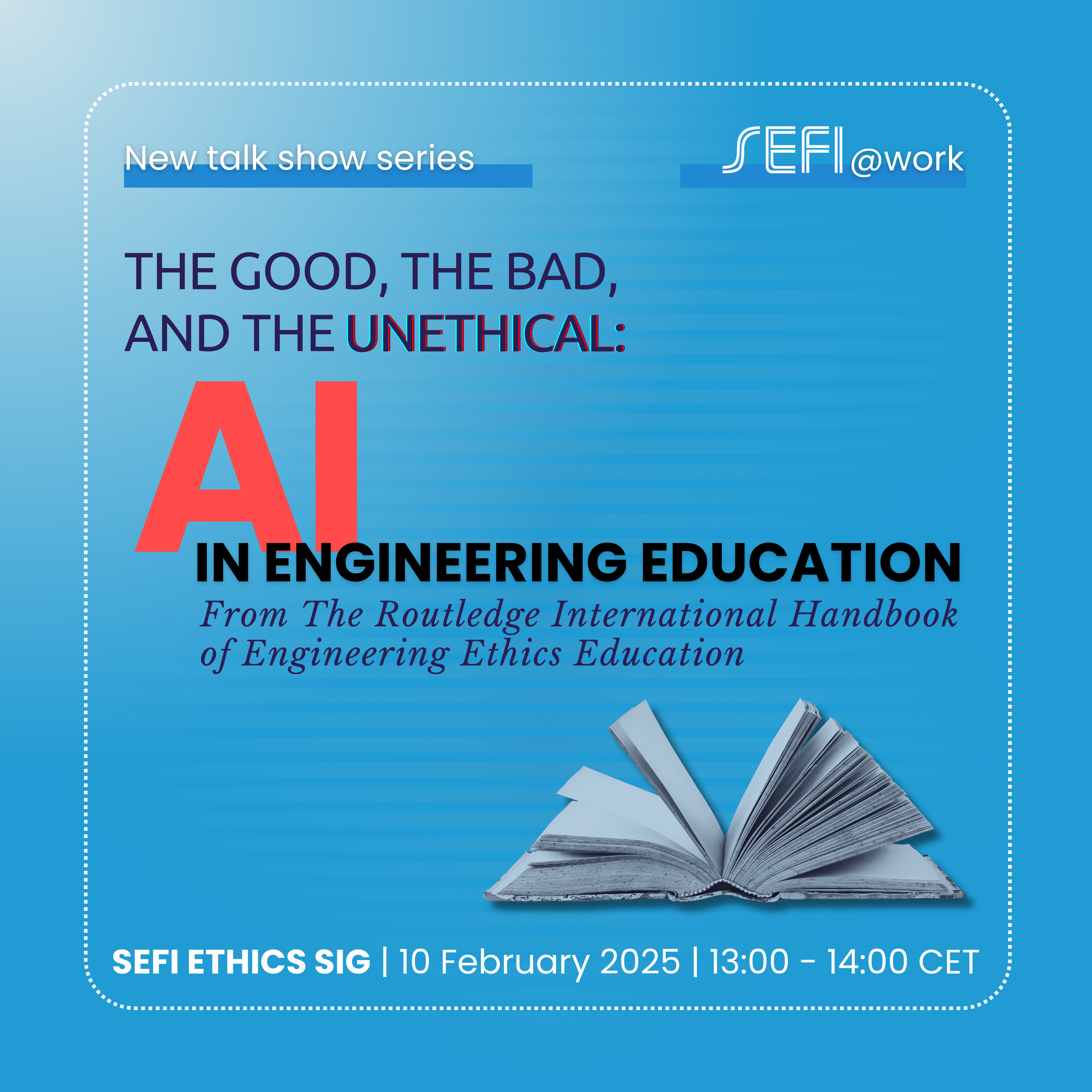7 February 2025, 16:00-17:00 CET
Speakers and authors Gordon D. Hoople and Cindy Rottmann will present chapter 17 "Institutionalizing Social Justice in Engineering Curricula" from the handbook.
The Chinese philosopher Lao Tzu in the sixth century B.C. wrote:
There is nothing softer and weaker than water,
And yet there is nothing better for attacking hard and strong things.
For this reason there is no substitute for it.
All the world knows that the weak overcomes the strong and the soft overcomes the hard.
But none can practice it.
Tao-te Ching ch. 78, translation Wing-Tsit Chan
As we see this, it is close to what ethics is. Ethics also is soft and flexible, but can have a huge impact on reality.
Edmond Byrne in Urban water provision; Engineering considerations and Ethical [Framings,] for example, explains how being explicit about different world views will open up to different engineering interventions. Many interventions are stuck into large scale engineering involving increasing supply to meet growing demand. Students easily stay within the confines framed by the engineering report through their presentations. Explicit attention to different world views opens up to critical thinking and transdisciplinary approaches.
Ben Pauli in Rethinking Success and Failure in Community-Oriented Engineering gives a strong example of how the self-image of engineers influences what is considered and communicated as success. The contribution describes how in Flint, a majority African-American US city with over 40% of its population living under the poverty line, had elevated levels of lead found in the drinking water of residences. This is described as an engineering failure. But the contribution goes on to describe how a water sampling collaboration between Flint activists and community-oriented engineers volunteering its time, resources, and expertise. This team considered their contributions as a success, whereas the citizens themselves did not…
Ricki Levi and Daniel Mishori’s contribution TEK and the Challenge of a “Broad” Water Ethics is inspired by Anupam Mishra and complements Ben Pauli’s conclusions when they plea for what they call “Gandhian values of simplicity, solidarity, mutual-dependence, TEK (traditional ecological knowledge), and commons-based resource management.” They put forward a holistic ethical perspective of water.
This view is supported by Ingrid Leman Stefanovic, who in Why Engineers should care about Water Ethics explores how moral questions have received comparatively little attention in the decision-making frameworks that dominate water policy and management.
David Groenfeldt in his contribution A Water Ethics Framework for Engineers applies this to the micro-level, discussing how an ethical reflection in a village pilot project to introduce solar irrigation in Bihar, India led to “solar irrigation service providers” that lowered inequalities and local market deregulations.
Ilmas Futehally in Water Cooperation Quotient- An Engineering Perspective applies this to the macro-level, explaining how the availability of water influences wars between riparian countries. The contribution mentions the Strategic Foresight Group conclusion that “Any two countries engaged in active water cooperation do not go to war for any reason.” This is illustrated by the Grand Ethiopian Renaissance Dam (GERD) on the Blue Nile, and that, if from the beginning an ethical approach of cooperation and joint decision making had been made, much before the construction had started, the current impasse and near war between Egypt and Ethiopia would not have been reached.
These examples all lead to the same conclusion that Sarah Cotterill makes in Creating space for ethical discussion in environmental engineering education: We can embed much stronger links with sustainability and ethics throughout our engineering ethics education modules, ensuring technical or numerical content is framed within context to make it relatable.
This will lead, according to us, to a (water) ethics that is like water: soft, flexible and impactful.
Thank you for being with us and we wish you all the best for 2022,
Gunter Bombaerts and Diana Martin

